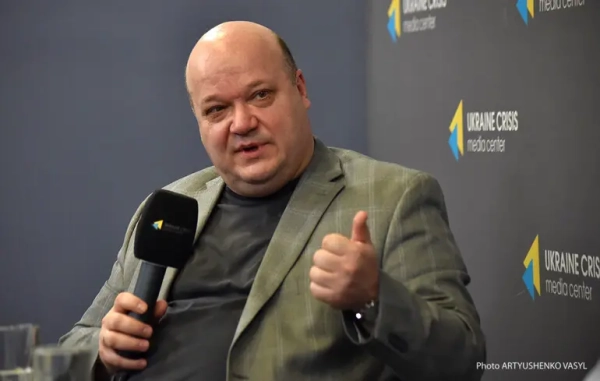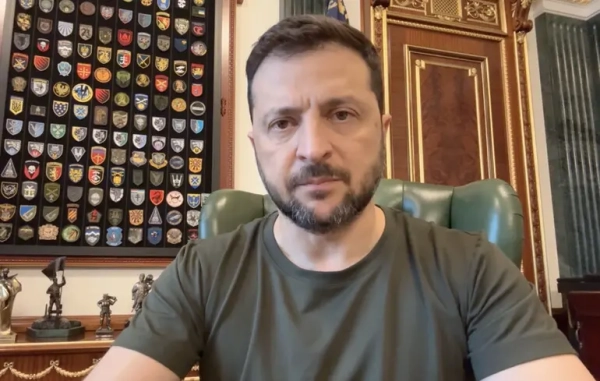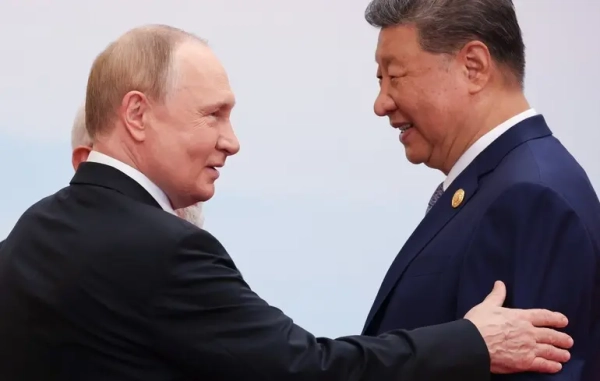Eighty-year-old Ronnie Hostler has been searching for his granddaughter Kadija Britton since he first reported her missing back in 2018.
"Mom, grandmother, aunts, uncles, all of us, the whole family, that's our dream right now … finding her," he said of his granddaughter, as her family last week marked her 29th birthday. "We all loved her, we all cherished her."
Hostler said his family feels like the odds are stacked up against them. His granddaughter is just one of the 5,000 or more unsolved cold cases of missing and murdered Indigenous women.
He has been working with local and federal law enforcement agencies to make sure Britton is not forgotten.
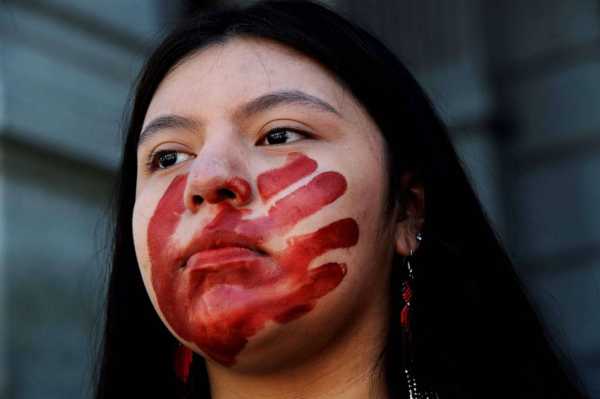
American Indian Academy of Denver student Leia Duran of the Ute and Navajo nations participates in a student-led rally in support of Missing or Murdered Indigenous Persons Awareness Day at the Colorado Capital in Denver, May 5, 2023.Jason Connolly/AFP via Getty Images
Hostler joined hundreds of other Native American tribal members this week at the first vigil in the state's capitol to commemorate the "Day of Awareness for Missing and Murdered Indigenous Women and People."
Cities around the country held similar events and marches last week, and White House officials issued a statement remembering the "many lives shattered or lost."
"We need to respond with urgency and the resources needed to stop the violence and reverse the legacy of inequity and neglect that often drives it," White House officials said.
Viola Williams attended the California event to highlight her cousin Emmilee Risling's story. Risling has been missing since October 2021 and her family has not stopped organizing search parties to locate her.
"We've been marching for generations. I've done it as a child, and now I do it with my children because we've been aware that our people have been facing this crisis where we have a high number of missing and murdered people," she said.
Williams said every Native American, Indigenous person she knows can put a face to a name of someone either missing or murdered.
"We know this as Indian people. But a lot of the larger society doesn't," she said.
Assemblymember James Ramos, the first Californian Indian elected to the state legislature, led Wednesday's event
"These murders are not just taking place on federal Indian lands. They're taking place in urban cities. San Francisco, Oakland, L.A. It's taking place throughout the whole state," Ramos said.
"The fact of the matter is many Indian people live in urban and rural communities outside of the reservation."
Ramos was instrumental in introducing the state to the "Feather Alert," a program overseen by the California Highway Patrol. Much like the Amber or Silver alert, the alert will help reduce the disproportionate number of missing Indigenous persons in the country by allowing for different agencies to cross share information about missing and murdered Indigenous women, Ramos said.
"When I first got elected in the state legislature, California was number seven of all states not investigating or bringing resolve to missing and murdered Indigenous women indigenous persons," Ramos said.
"Today, as we sit, California is now in the top five. It's moving in the wrong direction."
Murder is the third-leading cause of death among American Indian and Alaska Native Women on tribal lands, according to the Centers for Disease Control and Prevention.
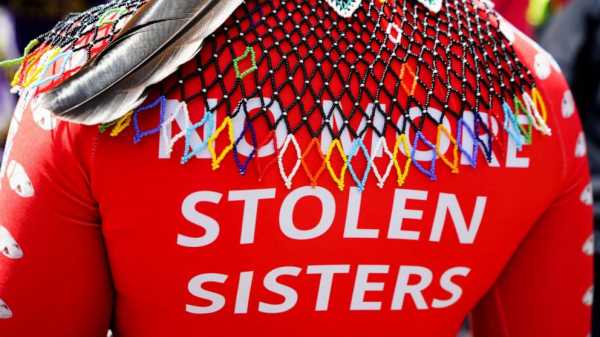
A marcher wears a shirt reading “No more stolen sisters” during the third annual march and gathering for Missing & Murdered Indigenous Women, People & Families, hosted by the grassroots organization MMIWP Families, Saturday, May 6, 2023, in Seattle.Lindsey Wasson/AP
This week, for the first time in California's history, a bill allowed for the Capitol dome to stay lit in red, the color linked to campaigns highlighting the disproportionate number of Indigenous people that have become victims to violence.
"Being chair of rules and Joint Rules, it's up to me to approve lighting the Capitol. And this year I approved it," Ramos said. "Prior years, it was denied."
Ramos said he has engaged in several conversations with family members of those still searching for answers, but the lack of resources and jurisdictional boundaries have forced some tribal reservations to declare a state of emergency.
"One tribe in particular around Valley in less than three weeks, seeing two fatalities come their way. And then we see in Yurok, they've been also hit pretty hard on this issue," Ramos said.
"Yet it seems that resources and the awareness is far and short and coming when it comes to tribal communities."

A marcher wears a red handprint on their face during the third annual march and gathering for Missing & Murdered Indigenous Women, People & Families, May 6, 2023, Seattle.Lindsey Wasson/AP
It's something Hostler and his family have known for too long. He said his family is in pain knowing that they have to experience a reality that generations before them have faced.
"We have two cemeteries and once we find her, whatever justice is [it's] up to the sheriff department [to] deal with that," he said. "We want to find her. We want to know."
For now, the 80-year-old grandfather holds on to memories of days when his granddaughter Khadija was happy. He said he remembers the honor student as a fierce athlete who gave it "all she's got on the court."
"She was a good basketball player, she was a good girl," he said. "I just miss her smile."
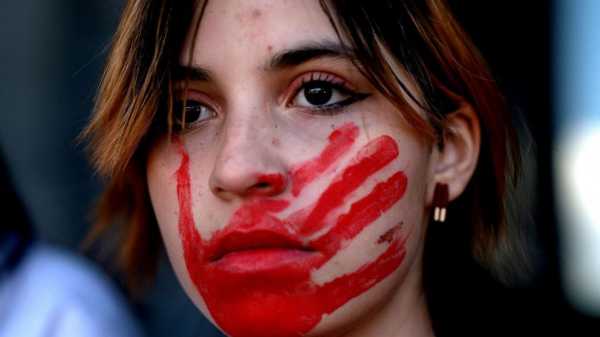
American Indian Academy of Denver student Candice Bueno of the Lakota nation participates in a student-led rally in support of Missing or Murdered Indigenous Persons Awareness Day in Denver, Colorado, May 5, 2023.Jason Connolly/AFP via Getty Images
California has 110 sovereign tribal nations, amounting to one of the largest Native American populations in the country.
Ramos said "the lack of attention towards California's first people for close to 170 years" is "a great responsibility" that he's tackling head on.
He said he starts his day with a prayer and ceremony in honor of his ancestors who fought for his existence and wants to keep fighting to make space for the next generation.
"These women are loved ones, loved ones, sisters, daughters, grandchildren, future leaders of Indian communities. They have been taken from us. We can't stand for this anymore," he said.
"The resiliency of our people still shows today. We go through so much, but we're still here and we're not backing down."
Sourse: abcnews.go.com
